LAST year, an estimated 35,750 women were diagnosed with breast cancer in Spain, a shocking 7,000 more than in 2015.
This rise is partly due to the growing numbers of younger women diagnosed with the disease.
This year, an estimated 4,132 people under 44 are expected to have been diagnosed with breast cancer here, a 9% increase compared to 2021.
It’s an alarming rise, but what is being done about it?
“It’s a fact that breast cancer is increasing in younger women,” oncologist Dr Javier Salvador at Sevilla’s Hospital Virgen del Rocio told the Olive Press.
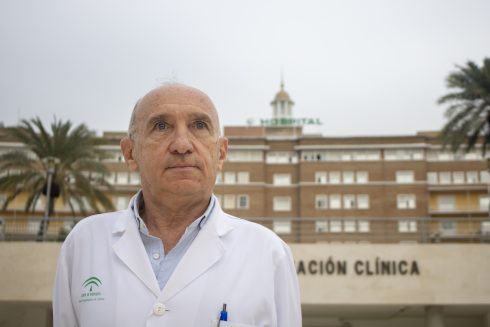
“The general occurrence of cancer is rising and it is fundamentally associated with unhealthy habits. Breast cancer is no exception”.
In the past 30 years, cancer incidence in the under 50s has risen by an incredible 79% according to a Global Burden of Disease (GBD) study, and it’s no coincidence that during this time our lifestyles have changed dramatically.
Alcohol is believed to have been a major factor in 18% (2,100) of Spain’s breast cancer cases in 2020. And on a European level, 4,600 breast cancer diagnoses were linked to drinking just one glass of wine a day, according to the Spanish Society of Medical Oncology (SEOM).
“Cancer is fundamentally caused by changes in lifestyle choices,” explained Dr Ana Casa, founder of charity Actitud Frente al Cancer, who herself has had breast cancer.
“Changes to diet, obesity, how we raise children, how much alcohol and tobacco we consume, etc, etc, all make a difference,” she added.
Leading a healthy lifestyle including a balanced diet, exercise and limited tobacco and alcohol intake, is therefore key to reducing the risk.
Dr Casas also highlights that while unhealthy habits are influencing the disease, rates are also rising due to better detection via increased screening campaigns and improved awareness.
In Andalucia, for example, the Junta has widened its ‘Early Detection Screening Programme’, from 50 to 69-year-old to 47 to 71-years-old. The new measures give access to screenings every two years and have already had a significant impact in the region.
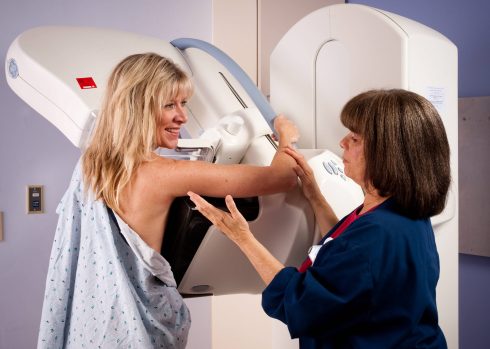
In just the nine months up to October this year, 387,906 women have been checked, which is a third more (34%) than in the whole of 2018, when 289,552 people were screened.
As a result, 881 women have been diagnosed.
In Valencia, the Breast Cancer Prevention Programme screens 800,000 women aged between 45 and 69 every two years.
The programme has been judged a success by the health authority – and since the programme started in 1992, almost five million mammograms have been undertaken.
Last year, a total of 329,367 women were screened in the region and 1,420 cases of breast cancer were detected, the vast majority in an early stage.
This early detection is vital, according to Dr Casas: “If we detect the cancer earlier, there is a much higher chance of survival,” she explained to the Olive Press.
But for women who have experienced the aggressive disease first hand, 47 is simply not young enough to start screening.
Expat Lisa Burgess was just 55 when doctors discovered she had 15 tumours in her breasts.
The British-Irish journalist, based in Mijas, underwent four gruelling operations and has since become a pillar of support for other expats suffering from the disease.
“I know from experience of the healthcare system that a lot of women are contracting cancer in their 30s,” she explained. “It’s getting really serious and the authorities need to start focusing on prevention, on detecting it earlier and at a younger age.
“If it had been detected even in my 30s, it would have been much easier, possibly just radiotherapy. Not a mastectomy.”
Research shows that young women diagnosed with breast cancer often have more advanced and aggressive forms of the disease, as a lack of screening allows the tumour to grow undetected.
However, not everyone agrees on lowering the screening age.
Fernando Henao, Breast Cancer Working Group Coordinator of the Andalucia Society of Medical Oncology, says there is no need to further drop it.
He told the Olive Press: “There isn’t any solid data saying that it would be beneficial to do screening on women under 40.
“Of course in some circumstances it would be sensible, if say, there is cancer in the family or if the woman has some sort of predetermined factors. But in general, I don’t think it’s necessary to start earlier than 47.”
Fortunately research will make this decision with hundreds of studies being carried out around Spain at present.
The research gives patients more chances ‘to be attended to by oncology services’, ultimately giving them more opportunities for treatment and a better chance of survival.
At Hospital Virgen del Rocio, in Sevilla, current research is focussing on identifying cancer biomarkers for more effective treatment.
Biomarkers are genes, proteins or other substances which can provide information about the type of cancer a patient has.
Each persons’ biomarkers are unique and allow doctors to identify how effective treatments will be for the patient.
The process means that patients can avoid unnecessary toxic, invasive and painful treatments.
Alongside cancer screenings, the treatment will make treatment shorter, less traumatic and ultimately more successful for patients.
Identifying the most appropriate treatments is also key to preventing the recurrence of the disease and both Andalucia and Valencia are heavily involved in Natalee, an international study focussing on combining treatments to prevent breast cancer recurrence.
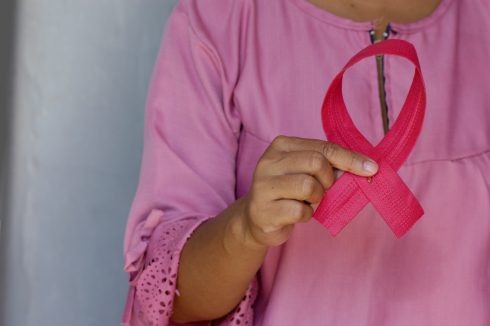
The treatment combines the drug ribociclib with endocrine therapy to stop the cell cycle, preventing cancer growth.
Some 190 Andalucian and 88 Valencian patients are involved in the international study, which has already reduced the risk of breast cancer recurrence by 25%.
Thanks to ongoing research projects like Natalee, survival rates globally have gone from 70% to 90% in the past 50 years.
Just last year, a Mallorcan study succeeded in curing tumours initially resistant to treatment in the most aggressive form of breast cancer.
Triple negative breast cancer usually affects younger women and is the fastest developing form of the disease.
Studies like this help to give women the hope Dr Casas advises for those newly diagnosed.
Reflecting on her own experience battling breast cancer, she said: “Firstly, learn as much as you can about the tumour and make informed decisions.
“It’s important to have an active attitude. Secondly, be hopeful because treatments are greatly improving. Have hope and trust in the research.”
For people suffering with cancer, much of this hope is found in the support of their community. For Lisa Burgess – who wrote a regular Olive Press column on her year of treatment – there was no better support than her fellow expats.
“I received a lot of support from the expat community. They were completely wonderful.
“Now, I speak to women everyday who have been diagnosed. It’s my small way of giving back. I support them as much as I can.”
A strong sense of community, innovative research and forward thinking screening programmes clearly make the fight against breast cancer a more positive one.
If you have not received a letter about booking a screening, contact your Primary Care District (Distrito de Atención Primaria), Health Management Area (Área de Gestión Sanitaria) or family doctor, who will give you an appointment.
READ MORE:
- Sunscreen chemicals that could kill aquatic organisms found in Murcia’s Mar Menor lagoon
- Health experts demand energy drinks be BANNED for U18s in Spain’s Andalucia: This is why
- “Go and clean, wh*re!” Vile moment female basketball referee is heckled during match in Spain


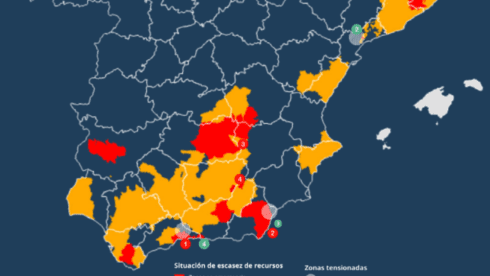
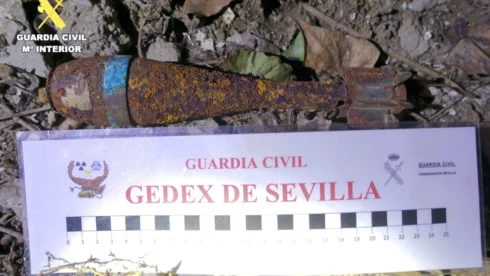







Those are disturbing figures! I see why more people are turning to alternative cancer treatments. I recommend The Budwig Center in Torremolinos.